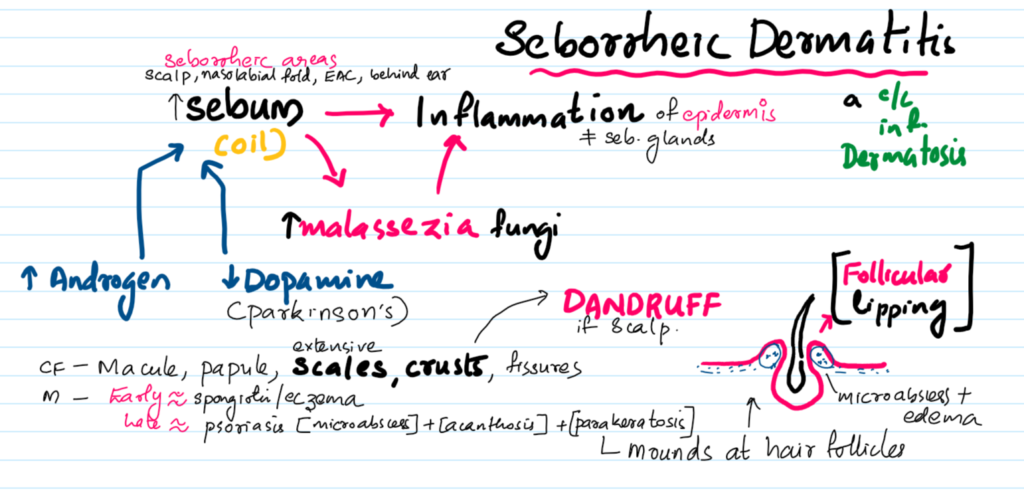
Tag: parkinsonism
Etiopathologenesis
Loss of Dopaminergic neurons from SUBSTANTIA NIGRA (Parkinson disease).
Destruction of SN neurons due to exposure to MPTP (1 METHYL 4 PHENYL 1,2,3,6 TRIHYDRO PYRIDINE) – contaminant of illicit opioids. (Acute Parkinsonian syndrome)
Gut-Brain hypothesis (enteric NS to medulla)
Clinical features
- Triad (all motor – due to SN involvement)
- Tremor (pill rolling tremor)
- Rigidity
- Bradykinesia
- Responds to L-Dopa.
- Appearance:
- Masked face – less expression
- Stooped posture
- Slowing of voluntary movement (Bradykinesia)
- FESTINATING gait
Pathology
Protein accumulation in cytoplasm, mitochondrial damage, lysosomal dysfunction (a/w Gaucher disease).
Diagnostic hallmark: Alpha Synuclein: Major component of Lewy body.
Encoded by SCNA gene.
Effect like Alzheimer’s (ABeta) – forms deposits.
Propogates like Prion (PrPsc).
Other proteins: DJ1, PINK1, PARKIN. These are involved in Mitochondrial dysfunction.
Morphology
SN – Pallor. (White)
Neuronal loss + reactive gliosis
Lewy bodies – eosinophilic irregular multiple cytoplasmic inclusions with halo.
Densely packed filaments of alpha synucelin.

What?
Progressive loss of a group of neurons having same function.
All are Proteinopathies.
Caused due to accumulation of insoluble proteins.
Tangle / plaque / lewy body.
List:
- Prion disease
- Alzheimers disease
- Fronto-temporal lobar degeneration (FTLD)
- Parkinson disease
- Atypical Parkinson disease
- Huntington disease
- Spinocerebellar generation
- Amyotrophic lateral sclerosis (ALS)
- LMN and UMN Palsy with Bulbar involvement. (Swallowing)
- Other motor neuron diseases
